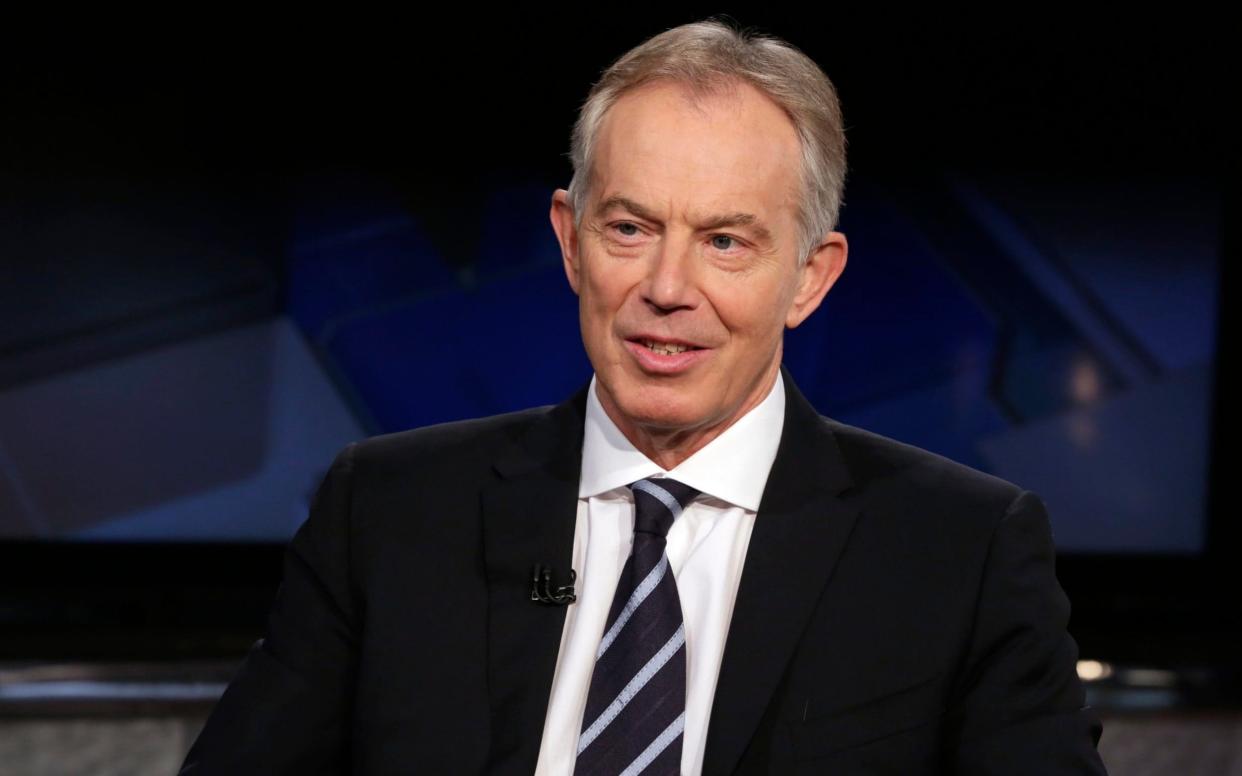Tony Blair says Theresa May does not need Parliament's approval for air strikes against Assad regime

Tony Blair has backed calls for military intervention in Syria and suggested that Theresa May could avoid seeking Parliament’s approval before taking action against Bashar al-Assad.
The former prime minister has warned that failure to take action against the Syrian regime and its allies in the wake of a suspected chemical attack in Douma would only make them feel “emboldened to do more”.
The suspected chemical weapons attack late on Saturday killed at least 60 people, with more than 1,000 injured at several sites in Douma, a city near the capital, Damascus, according to a Syrian aid organisation.
Lending his support to the possibility of US-led airstrikes against the Assad regime, Mr Blair said that the UK should be “supportive” and that Mrs May should consider exercising the royal prerogative, which would avoid the need for a parliamentary vote.
“I think it is important provided that our advice about the source of the attack is the same as that of US that we would support US action,” he told BBC Radio 4’s Today programme.“If the US are taking action we should be prepared to be alongside them.
“It's just important to realise that if we allow it to go unchecked and unanswered then obviously the Assad regime and their outside backers, (and) in Russia and Iran will feel emboldened to do more, so I think it is important that we react."
Douma chemical attack
Asked if Mrs May should seek Parliamentary approval, Mr Blair suggested that air strikes did not necessarily require the same protocol usually required for the deployment of ground forces.
“"I think in circumstances where the action presumably would be a form of air action rather than ground force action,” he continued. “I don't think strictly it's necessary... I think this is something that she can consider.
"I think if the Americans are prepared to act and are going to act fast, I think ourselves, probably the French government will be in the same position, should be supportive, because it's important that when chemical weapons are used in this way and the international community has taken a firm position against it that you have to enforce it.
"This is why these decisions are immensely difficult, but if you put the other point of view and you say 'well let's suppose we do nothing' then you really are giving carte blanche to the regime to do whatever is necessary to retake opposition areas by force."
It comes after Lord Hague, the former Foreign Secretary, warned that failure to confront Assad over the use of chemical weapons will mean they become “legitimised” in future conflicts.
Writing for The Telegraph, Lord Hague added that there is “little doubt” that if he was still in office today he would recommend military intervention.
Syria chemical attack | Read more
His comments were echoed by Tory MP Johnny Mercer, a member of the Commons defence committee and former soldier, who claimed that, post-Iraq, Britain had reached a “fetid low” when it came to taking hard decision on foreign military action.
“It is a cop-out to go to Parliament on issues of national security, as if our leaders haven’t the courage to take the decisions themselves,” Mr Mercer wrote in a piece for The Telegraph.
“We elect a government and then a Prime Minister, cognisant of all the intelligence, risks and balances to take these decisions.
“This is a uniquely useless way of conducting foreign policy, and in almost one action emasculates us on the world stage.”
Syria chemical weapons
Discussing the obstacles facing Mrs May in the aftermath of the Iraq War, Mr Blair said that whilst decisions on military intervention were “extremely difficult”, failing to intervene is also a “policy with consequence”.
“Iraq shows you that intervening is extremely difficult, but non-intervention as we see from Syria is also extremely difficult,” he added.
Mrs May is expected to discuss the UK’s response to the chemical attack with Donald Trump later today, after the US President said last night that an announcement could be expected within the next 24-48 hours.

